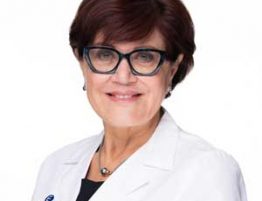
October is Breast Cancer Awareness month and is represented by a pink ribbon. It has been observed for nearly four decades as a reminder for women to learn about breast cancer risk factors as well as the importance of early detection. According to the Centers for Disease Control (CDC), breast cancer is the second most common cancer in women with 240,000 new cases each year. 1 in 8 women will be diagnosed in their lifetime, translating to an average of a person every two minutes in the United States. Men can also get breast cancer, with 1 in every 100 diagnoses being for a male.
There are many things that women can do to reduce their risk, in addition to maintaining a healthy lifestyle and getting regular mammograms. First they should know their family history and the risk factors based on that history. Secondly, they need to ‘know their normal’, which refers to monitoring their bodies and identifying when something doesn’t seem right. And finally they should perform a monthly breast self-exam. This encourages women to be familiar with their breasts and to check for any changes. The main signs and symptoms of breast cancer are a lump in the breast or underarm (armpit); swelling or thickening of all or part of the breast; dimpling or skin irritation of breast skin; redness, scaliness or thickening of the nipple or breast skin; nipple discharge (other than breast milk); any change in the size or shape of the breast; and pain in any area of the breast. Women should work with their physician to create a proactive plan based on their unique situation.
“The rising incidence of breast cancer is fearsome but over the past 7 years that burden has been met by brilliantly innovative research and treatment regimen design.. immunotherapy, antibody drug conjugates and other targeted therapies are available and being increasingly used,” states Dr. Howard Benn, Director of Oncology, HVA Medical Group. “It’s imperative that early diagnosis is achieved and that that early advantage be translated into remission by the use of the above-mentioned novel therapies. Breast cancer touches us all with a majority of families having at least 1 or more family members afflicted by the disease, so let us all show solidarity and raise awareness to redress the dreadful advantage that breast cancer now enjoys.”
For those that want to donate their time or money, there are many organizations dedicated to education, patient care and research. There are many needs…ranging from helping with events to assisting patients in treatment to raising money for research. Visit cancer.gov, cdc.gov, and komen.org for more information.

